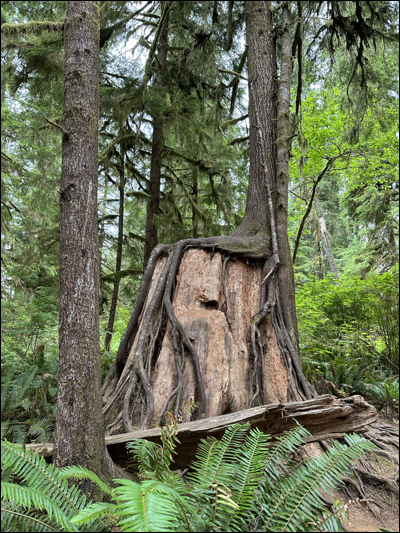
The forests of the Cascadia region, spanning across British Columbia, Washington, Oregon, and California, are invaluable ecosystems that play a crucial role in mitigating the impacts of climate change and preserving biodiversity. The pressing need to save these forests arises from the intensifying threat of climate change, which is leading to an increasing frequency and severity of wildfires. These fires are not only devastating the natural landscapes but also disrupting the delicate balance of the region’s ecosystems.
Carbon Sequestration: Forests act as carbon sinks, absorbing carbon dioxide from the atmosphere and storing it as biomass. The trees and soil in these forests play a significant role in capturing and storing carbon, thereby helping to mitigate the impacts of greenhouse gas emissions and slow down global warming.

Biodiversity Hotspots: The Cascadia forests are home to an incredible array of plant and animal species, some of which are found nowhere else on Earth. Protecting these forests preserves vital habitats and ensures the survival of numerous species, contributing to global biodiversity conservation efforts.
Water Regulation: The forests play a key role in regulating water flow and maintaining watershed health. Their intricate root systems help prevent soil erosion and filter water, which in turn contributes to cleaner water sources for both wildlife and human populations downstream.
Cultural and Spiritual Significance: These forests hold deep cultural and spiritual significance for Indigenous communities. They are often considered sacred and are integral to the traditions, beliefs, and practices of these communities.
Tourism and Recreation: The natural beauty of the Cascadia forests attracts tourists and outdoor enthusiasts, boosting local economies through ecotourism and recreational activities such as hiking, camping, and wildlife watching.
Climate Change Resilience: Healthy forests can contribute to the resilience of ecosystems against the impacts of climate change. They provide buffer zones against extreme weather events, mitigate flooding, and offer habitats for species to adapt to changing conditions.
Fire Mitigation: While wildfires are a natural part of many ecosystems, the increasing frequency and intensity of wildfires due to climate change pose significant challenges. By preserving and carefully managing these forests, we can reduce the risk of catastrophic wildfires and protect communities and infrastructure.
Air Quality: Forests play a role in improving air quality by absorbing pollutants and releasing oxygen. Their presence contributes to healthier air for both local residents and the broader region.
Economic Importance: The forests of the Cascadia region also have economic significance, providing resources such as timber, non-timber forest products, and jobs in the forestry and related industries. A balanced approach to conservation can ensure the sustainable use of these resources.
In the face of escalating climate change impacts, it is essential to take immediate action to protect and preserve the forests of the Cascadia region. This requires collaborative efforts among governments, Indigenous communities, conservation organizations, and the public to implement sustainable land management practices, promote responsible tourism, support reforestation and restoration initiatives, and advocate for policies that prioritize forest conservation and wildfire prevention. By doing so, we can safeguard the ecological, cultural, and economic value of these forests for current and future generations.
